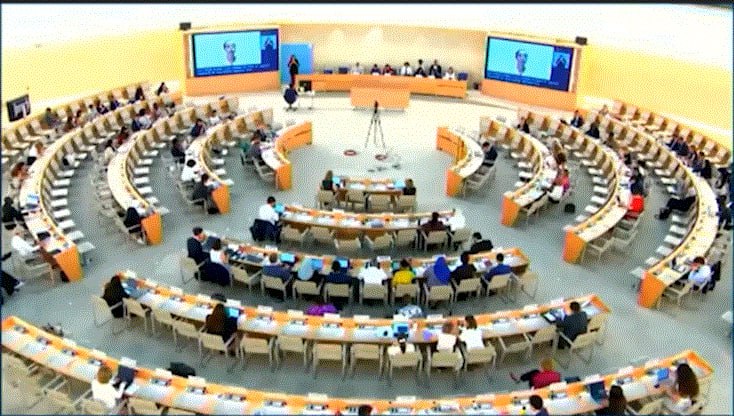The Universal Periodic Review (UPR) is an important tool to keep states accountable, combat impunity for human rights violations, and promote open dialogue on human rights issues. Nevertheless, states such as Saudi Arabia notoriously do not follow through on their promises to implement recommendations, a fact that many at Saudi Arabia’s fourth Universal Periodic Review[…]
The recent forced labor complaint against the Saudi Arabian government by the Building and Wood Workers’ International Union (BWI) underscores significant concerns about the treatment of migrant workers under the country’s Vision 2030 plan. This action by the BWI, representing 12 million members, serves as a stark warning to Saudi authorities, businesses, and investors about[…]
Americans for Democracy and Human Rights in Bahrain, together with the European Centre for Democracy and Human Rights, launches the #GameOverSaudi campaign, a concerted effort to address the women’s rights situation in Saudi Arabia amid the celebration of the Esports World Cup in the country. The tournament, which arises as the largest global event of[…]
On July 3, 2024, the Esports World Cup, the largest global event of its kind, will kick off in Saudi Arabia amid controversy in the gaming community. Saudi’s last attempt to become a hub for international esports has, once more, triggered discussions about the ethical implications of hosting major sports -and esports- events in countries[…]
On 28th June 2024, ADHRB delivered an intervention at the United Nation Human Rights Council session 56 during the annual discussion session on the human rights of women. ADHRB considered that Saudi Arabia should harmonize its legislation with human rights standards and release those detained for speaking out and advocating for women’s rights. Saudi Arabia’s[…]









